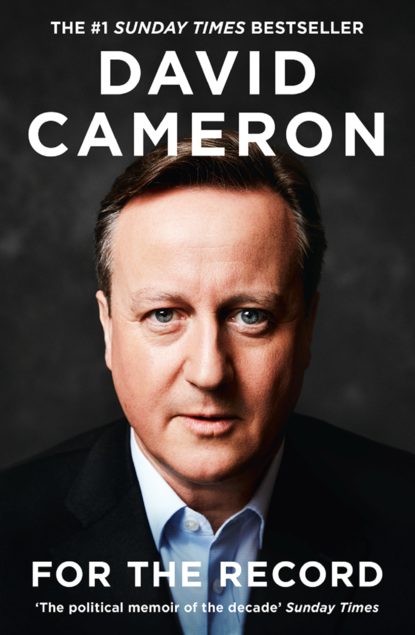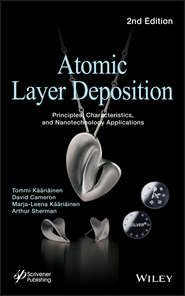По всем вопросам обращайтесь на: info@litportal.ru
(©) 2003-2024.
✖
For the Record
Настройки чтения
Размер шрифта
Высота строк
Поля
Afghanistan visit (Leon Neal/AFP/Getty Images)
Hamid Karzai’s visit to Chequers (Andrew Parsons)
Bloody Sunday inquiry statement (Peter Muhly/AFP/Getty Images)
Signing the independence referendum agreement with Alex Salmond (Gordon Terris/Pool/Getty Images)
Speaking in Benghazi (Philippe Wojazer/AFP/Getty Images)
Meeting local residents in Benghazi (Stefan Rousseau/AFP/Getty Images)
Queen Elizabeth II attends the government’s weekly cabinet meeting (Jeremy Selwyn/WPA Pool/Getty Images)
The Olympic torch arrives in Downing Street (Peter Macdiarmid/Getty Images)
Florence at the Alternative Vote referendum campaign (Andrew Parsons)
Barack Obama meeting Larry the cat (White House/Alamy)
Meeting with Barack Obama at the Camp David G8 (Obama White House)
G8 and EU leaders at the Britain G8 Summit (Jewel Samad/AFP/Getty Images)
With Vladimir Putin at the Olympics (Jeff J Mitchell/Getty Images)
With Angela Merkel at Chequers (Justin Tallis/Pool/Getty Images)
The G7 participants in Bavaria (A.v.Stocki/ullstein bild/Getty Images)
Working on the contents of the red box (Tom Stoddart/Getty Images)
Holding the letter left by Liam Byrne reading ‘I’m afraid there is no money’ (Andrew Parsons)
Campaigning for the 2015 election (Dan Kitwood/Getty Images)
Writing the losing speech ahead of the 2015 general election (Andrew Parsons)
Visiting the Sikh festival of Vaisakhi in Gravesend (WENN Rights Ltd/Alamy)
Celebrating the winning count during the 2015 general election (Andrew Parsons)
Returning to Downing Street (Arron Hoare/MOD, Crown Copyright © 2015)
With Angela Merkel, Fredrik Reinfeldt and Mark Rutte in a boat in Harpsund (Jonathan Nackstrand/AFP/Getty Images)
With Bulgarian Prime Minister Boyko Borisov at the border iron fence (NurPhoto/Getty Images)
At Wembley Stadium with India’s Prime Minister Narendra Modi (Justin Tallis/WPA Pool/Getty Images)
Drinking a beer with China’s president Xi Jinping (Kirsty Wigglesworth/WPA Pool/Getty Images)
Meeting Donald Tusk and Jean-Claude Juncker (Yves Herman/AFP/Getty Images)
Inspecting the renegotiation documents with Tom Scholar and Ivan Rogers (Liz Sugg)
Addressing students and pro-EU ‘Vote Remain’ supporters (Christopher Furlong/Getty Images)
Watching the EU referendum results come in (Ramsay Jones)
Nancy, Elwen and Florence Cameron writing a letter for the incoming prime minister (Andrew Parsons)
Preparation for the final appearance at Prime Minister’s Questions (Andrew Parsons)
The last official visit as prime minister (Chris J Ratcliffe/WPA Pool/Getty Images)
With family before leaving Downing Street (Andrew Parsons)
Visit to Alzheimer’s UK (Edward Starr)
Every effort has been made to trace copyright holders and to obtain their permission for the use of copyright material. Where not explicitly referenced, the pictures are sourced from the author’s personal archive. The publisher apologises for any errors or omissions in the above list and would be grateful if notified of any corrections that should be incorporated in future editions of this book.
Foreword (#u789047ca-ff68-5fa2-b8c8-a01b5b90a4e0)
It is three years since the referendum on Britain’s membership of the European Union. Not a day has passed that I haven’t thought about my decision to hold that vote, and the consequences of doing so.
Yet during that time I have barely spoken publicly about it, or about any issues around my premiership. The reason is that I wanted to let my successor get on with the job. It is hard enough being prime minister – let alone one who has the momentous task of delivering Brexit – without your immediate predecessor giving a running commentary.
That silence has inevitably let certain narratives develop, for example about my motivations for holding the referendum and about my departure from Downing Street. There has been analysis of aspects of my premiership – from the campaign in Libya to the schemes that have helped so many people to buy their own home – with which I have disagreed deeply.
But my discomfort at not being able to respond to these things is nothing compared to the pain I have felt at seeing our politics paralysed and our people divided. It has been a bruising time for Britain, and I feel that keenly.
Yet just as I believe it is right for prime ministers to be allowed to get on with their job without interference, I also believe it’s right for former prime ministers to set out what they did and why – and to correct the record where they think it is wrong.
Fortunately, I kept a record during my time in the job. Every month or so, my friend and adviser, the journalist Danny Finkelstein, would come to the flat above 11 Downing Street where I lived with my wife Samantha and our three young children. Danny and I would sit on the sofas in the bright sitting room that overlooked St James’s Park, as he gently quizzed me about recent events.
Those recordings have helped me write this memoir, just as scribbles in a notebook or recordings on a dictaphone have assisted others. I sometimes quote directly from the recordings because they provide such an insight into how I felt at the time. Hearing them back – and writing this book – has helped me to understand how I feel about it all now.
A friend once asked Margaret Thatcher what, if she had her time again, she would do differently. There was a thoughtful pause, then she answered: ‘I think I did pretty well the first time.’ I don’t feel quite the same. When I look back at my career in politics, I do have regrets. Lots. Not every choice we made during our economic programme was correct. There were many things that could have been handled better, like the health reforms. What happened after we prevented Gaddafi slaughtering his people in Benghazi was far from the outcome I’d have liked. The first parliamentary vote on intervention in Syria was a disaster.
And around the EU referendum I have many regrets. From the timing of the vote to the expectations I allowed to build about the renegotiation, there are many things I would do differently. I am very frank about all of that in the pages that follow. I did not fully anticipate the strength of feeling that would be unleashed both during the referendum and afterwards, and I am truly sorry to have seen the country I love so much suffer uncertainty and division in the years sincethen.
But on the central question of whether it was right to renegotiate Britain’s relationship with the EU and give people the chance to have their say on it, my view remains that this was the right approach to take. I believe that, particularly with the Eurozone crisis, the organisation was changing before our very eyes, and our already precarious place in it was becoming harder to sustain. Renegotiating our position was my attempt to address that, and putting the outcome to a public vote was not just fair and not just overdue, but necessary and, I believe, ultimately inevitable. I know others may take a different view, but I couldn’t see a future where Britain didn’t hold a referendum. So many treaties had been agreed, so many powers transferred and so many promises about public votes made and then not fulfilled. With all that was happening in the EU, this could not be sustained.
Of course there are many who welcomed the referendum – and that was reflected in the overwhelming vote for it in Parliament and in the high public turnout when the time came. Far from being a flash in the pan, the referendum was announced more than a year before the 2014 European elections and more than two years before the general election. It was set out clearly in a manifesto that delivered an overall majority in the House of Commons.
But I know there are those who will never forgive me for holding it, or for failing to deliver the outcome – Britain staying in a reformed EU – that I sought. I deeply regret the outcome and accept that my approach failed. The decisions I took contributed to that failure. I failed. But, in my defence, I would make the case, as I think all prime ministers have, that especially when you are in the top job, not doing something, or putting something off, is also a decision.
And that is the thing that stands out for me when I look back over this time: decision-making. A prime minister these days is constantly in contact with their office by email, text and messenger services and is therefore making decisions, large and small, almost by the minute. They also, as I did over the EU referendum, consider the biggest decisions over months, even years. It’s the most difficult, most stressful, yet most rewarding part of the job. In many ways, it is the job (and I almost called this book Decisions for that very reason).






